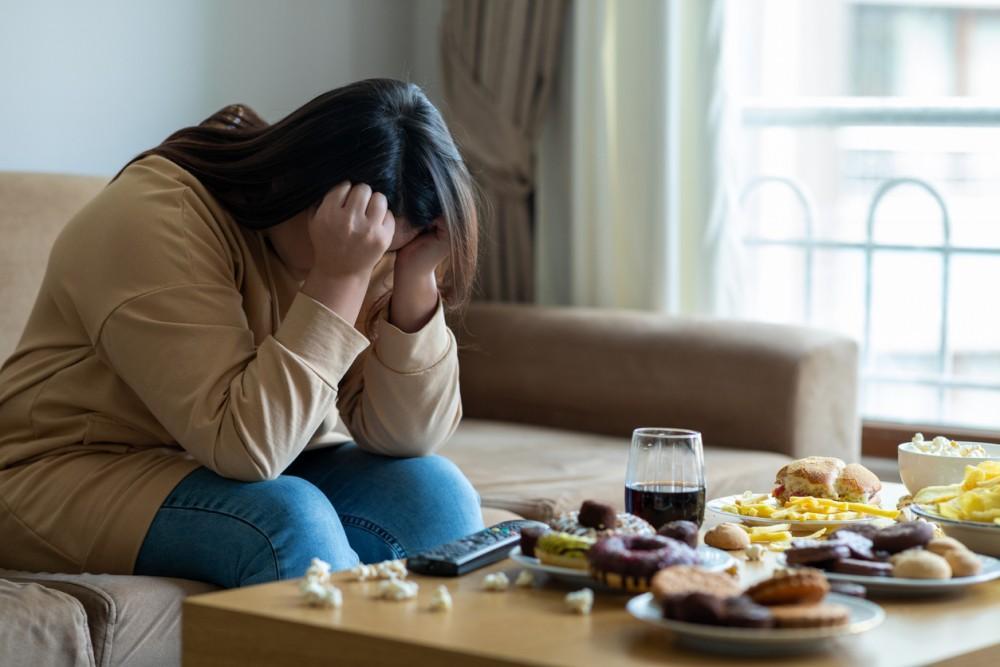
Do I have Binge Eating Disorder?

In the past three months, have you had any episodes of excessive overeating? If so, you could be suffering from Binge Eating Disorder (BED), the most common eating disorder. People with BED often feel like they lose control of their eating during the episode. They feel compelled to keep eating and keep seeking and eating food even after they are no longer hungry. Then afterwards, they feel distressed or embarrassed about what they just ate. They may guilty or even disgusted with themselves.
Unlike people with bulemia, they don't generally make themselves vomit after the over-eating.
Sometimes "catch up" eating, due to not eating all day or due to a medication like Adderall wearing off, can look like BED, but can be treated by eating healthy foods earlier in the day, and decreasing availablility of hyperpalatable junk foods in the evening. Depression can also manifest with binge behaviors.
If you think you may have Binge Eating Disorder, the first step is to recognize that you might have a psychological disease, not a personal failing. Then seek help from a licensed mental health professional who can treat you with Cognitive Behavioural Therapy (CBT), and possibly with medications. It is important to feel supported by your family and community at this time, and can often be helpful to also work with an Obesity Specialist. Remember that you are not alone and consider interacting with support groups such as Overeaters Anonymous.
You Might Also Enjoy...


Ozempic and Similar Drugs for Weight Loss- Should You, or Shouldn’t You?

You got engaged!!! How to look your best on your wedding day.

Summer Bodies are Made in Winter: Learn What our Advanced Body Sculpting Treatment Can Do for You

EMSCULPT NEO: The Noninvasive Body Sculpting Treatment Banishes Fat and Builds Muscle


